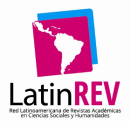Nationalization of Chilean copper and political overdetermination of the capitalist economy
DOI:
https://doi.org/10.54871/cl4c500yKeywords:
Salvador Allende, economy, politics, Marxism, natural resourcesAbstract
This article refers to Salvador Allende’s copper nationalization speech as a piece that articulates the notions of the Popular National State with the Marxist categories that lead to the historical recognition of revolutionary violence. It is argued that together with the nationalization of copper in Chile, the dislocation of the North American dollar begins a cycle in which, contrary to the assertions of orthodox Marxism, politics begins to overdetermine the economy. We maintain, even without offering a rigorous examination of evidence and models, that capitalism became this way due to the political victories of the working classes during the 20th century, in a cycle that began with the Russian Revolution, accelerated with the wars of National Liberation, and it deeply affected Latin America, and especially Chile and its Popular Unity Government, starting with the Cuban Revolution of 1959.
Downloads
References
Balmaceda, José Manuel (7 de marzo de 1889). La industria salitrera. https://www.memoriachilena.gob.cl/602/w3-article-68900.html
Jessop, Bob (2016). The state: past, present, future. Cambridge: Polity Press.
López Muñoz, Ricardo (2011). El americanismo en Chile ante la expansión política y militar europea sobre Hispanoamérica (1861-1871). Tesis doctoral en Estudios Latinoamericanos. Universidad de Chile.
Castoriadis, Cornelius (1989). El imaginario social y la institución. Barcelona: Tusquets.
Schmitt, Carl (2013). Teoría del partisano. Madrid: Trotta.
Downloads
Published
How to Cite
Issue
Section
License
Copyright (c) 2023 Miguel Urrutia F.

This work is licensed under a Creative Commons Attribution-NonCommercial-ShareAlike 4.0 International License.








